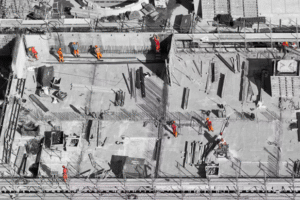Running a fire protection business can feel like you’re always one call away from chaos. Whether it’s a middle-of-the-night emergency, a client demanding last-minute inspection paperwork, or a tech quitting without notice, it’s a job that doesn’t really pause. But even with all that unpredictability, one thing stays consistent: fire safety is always in demand. And with the market expanding—thanks to stricter building codes, new construction, and more focus on safety—the opportunities for growth are real. The challenge is making that leap from staying busy to scaling your business into something bigger, more stable, and more profitable.
Growth doesn’t come from simply working harder. It comes from working smarter, organizing tighter, and learning how to step back just enough to see the bigger picture. Owners who figure this out are the ones who scale, while others stay stuck in survival mode. The difference isn’t luck. It’s systems, mindset, and timing.
When Being ‘Busy’ Isn’t Enough Anymore
It’s tempting to feel successful just because your schedule’s full. When you’ve got a full book of inspections and installs, and your phone won’t stop ringing, it’s easy to think you’ve “made it.” But being constantly busy doesn’t mean your company is growing—it just means you’re fully booked. And in many cases, that busyness hides bigger problems. Like no time to train your team. Or letting paperwork pile up until your cash flow stalls. Or being the only person who knows how to do half the things your business needs to run.
There comes a point when doing everything yourself starts to cost you more than it saves. It holds you back from chasing bigger contracts, hiring better talent, or even taking a day off without stress. The reality is, you can’t scale a business that revolves around you personally. You need your operation to run smoother, with repeatable systems that don’t depend on you doing it all. Especially in fire protection, where missed steps can lead to real risk, you need a way to grow without breaking under the pressure.
And the work is only multiplying. Between stricter compliance standards and demand for smarter safety systems, it’s not just about showing up on time—it’s about proving your company can deliver reliable, documented, and well-managed protection. That’s even more true in high-stakes places like hospitals, schools, and manufacturing plants. Residential clients are demanding more too. When residential fires make headlines, people don’t want the cheapest option—they want the company that looks organized, trustworthy, and professional.
From Chaos to Clarity: How Software Changes Everything
Let’s be honest: most fire protection businesses weren’t built on clean systems. They were built on grit, long days, and personal relationships. That’s a strength—but it’s also a weakness when you start growing. When you’ve got more than a few technicians in the field, juggling install jobs and inspections, you need to know where everyone is, what equipment they’ve used, and how each job is moving along. You also need to track inventory, customer history, billing, and compliance documentation. And you need to do it all without losing your mind.
That’s where fire protection software can completely change the game. Companies that use it don’t just “stay organized.” They scale faster, cut down on mistakes, and look more professional to clients who are deciding between you and your competitors. It makes scheduling jobs easier, helps with inspection reporting, and stores everything in one place. Most importantly, it gives owners back time. Time to think. Time to strategize. Time to finally work on the business instead of drowning in it.
Alongside that, don’t forget about invoicing and scheduling software. The faster you bill, the faster you get paid—and slow cash flow is one of the main reasons small service businesses stay stuck. Automation doesn’t just save time. It makes your company look like it has its act together. And that gives clients more confidence in trusting you with their buildings, their people, and their long-term service contracts.
Hiring Smarter, Not Just Faster
You might think growth is just a matter of hiring more technicians and getting more vans on the road. But if you don’t have clear systems, throwing more people into the mix just adds confusion. Scaling means you’re building something that works even when you’re not right there overseeing every single detail. That means documenting your install processes. That means writing down your inspection protocols. That means training your team the same way every time.
And yes, it means hiring better, not just quicker. When your operations are a mess, your best workers quit. No one wants to be part of a company where every day feels like a fire drill. But when you’ve got structure and clear expectations, it’s easier to attract people who want to stay and grow with you. Word gets around. A tight shop with good leadership becomes a magnet for strong technicians, which leads to even more growth. It’s a flywheel, but it has to start with systems and clarity.
Know When to Step Back—and When to Push Forward
At some point, every owner reaches a crossroads. You can either stay small and wear every hat forever, or you can step into a true leadership role and build something that runs without your constant involvement. That doesn’t mean walking away or giving up control—it means shifting your focus to strategy and long-term goals. That’s how you take your business from a stressful job to an asset that generates real freedom and value.
The hardest part is often giving up some control. Trusting your systems. Letting good people do their jobs. Delegating things you’ve always handled yourself. It feels risky, but it’s the only way to grow past a certain ceiling. And once you do, you start to see new opportunities—bigger contracts, new service lines, even expansion into other regions.
You don’t need a massive budget or a fancy office to grow. You need better systems, sharper tools, and the willingness to stop doing everything alone. The fire protection industry isn’t slowing down. The real question is: will your company rise with it—or get left behind?
Growth isn’t about doing more. It’s about doing better.






